Ever wondered why night views are way more attractive than daytime? The secret is facade lighting.
This specialized type of outdoor illumination uses light to strategically highlight a building’s exterior, transforming it from a simple structure into a nighttime landmark. It’s the art of painting with light to accentuate architectural details, create a captivating atmosphere, and enhance a property’s presence after dark.
But how do you choose the right tools for the job? A well-lit facade doesn’t just happen by chance; it’s the result of a carefully selected lighting scheme that can elevate a building’s identity, improve safety, and leave a lasting impression on anyone who sees it.
So, what lights can turn your architectural vision into a brilliant reality.
The best façade lighting designs use a variety of fixtures to create layers of light, adding depth, drama, and definition to the building.
Understanding the different types of landscape lighting available is key to selecting the perfect combination for your project. Here are five of the most effective types of lights for illuminating your building’s exterior:
Wall washers do exactly what their name suggests: they “wash” a large, flat surface with uniform, even light.
This technique is perfect for smoothly illuminating broad walls, minimizing shadows, and showcasing the texture of materials like stone or brick. Outdoor linear lighting is often used for this purpose.
They tend to create a uniform sheet of light. For large-scale exterior commercial lighting projects, wall washers are essential for making a bold, clean statement.
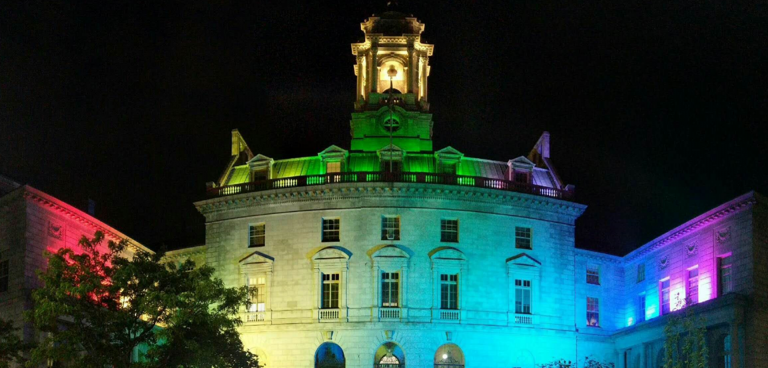
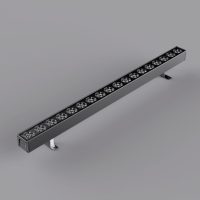
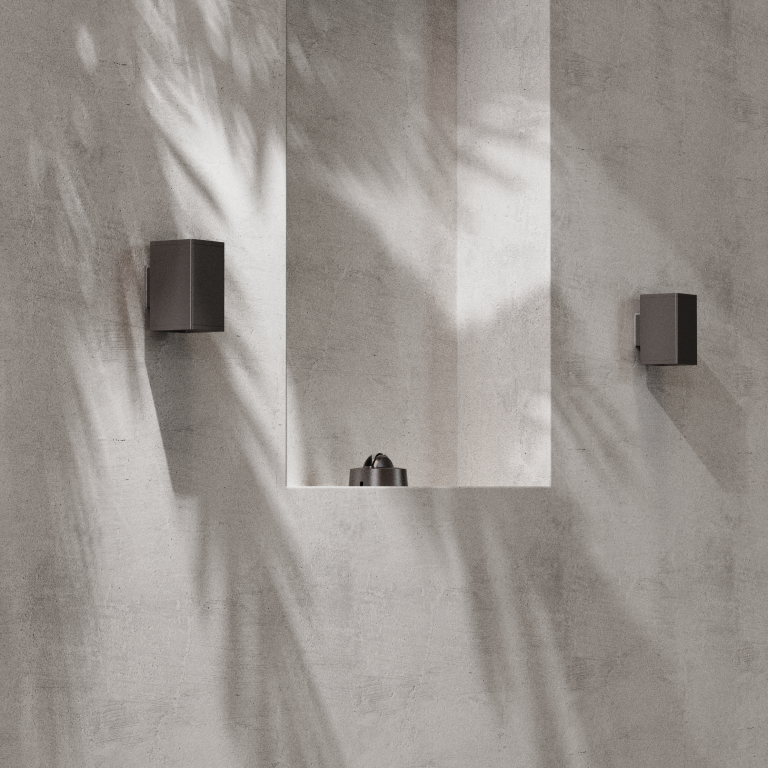
To add a touch of drama and highlight specific structural features, exterior up and down lights are an excellent choice.
These fixtures cast beams of light both upwards and downwards from a single point, creating striking visual patterns. They are perfect for mounting between windows, on columns, or alongside entryways to accentuate the building’s vertical lines and add a sophisticated, rhythmic feel to the design.
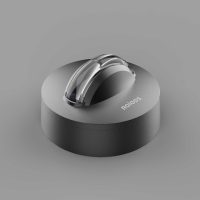
For a clean, contemporary look, exterior recessed linear LED lighting is second to none.
These fixtures are installed directly into surfaces like walls, ceilings, or even the ground, hiding the light source from view. The result is a subtle yet powerful effect, where clean lines of light appear to emerge directly from the architecture itself.
The adoption is to create a minimalist aesthetic and guide the eye along architectural contours.
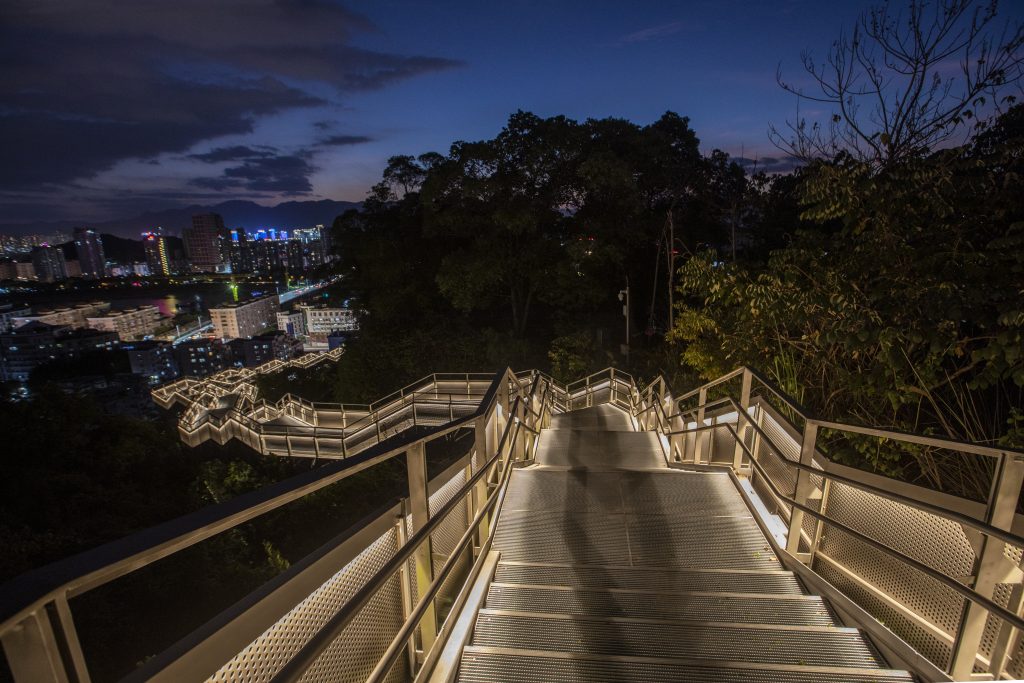
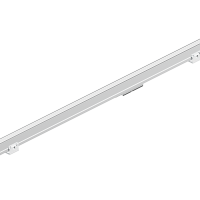
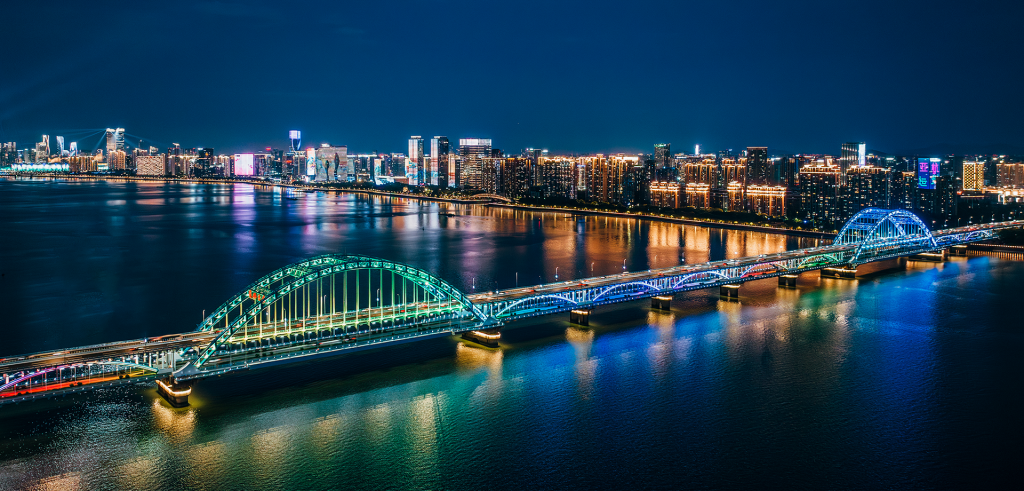
Floodlights are capable of bathing large areas in a wide beam of light. They’re ideal for illuminating the entire face of a building or highlighting significant landscape features.
Spotlights, their more focused cousins, use a narrower beam to draw attention to specific details like statues, logos, or unique architectural elements.
A well-planned mix of floodlights and spotlights creates both a foundational layer of light and sharp, eye-catching accents.
In-ground lights offer a dramatic way to uplight a facade from ground level. By installing these fixtures flush with the ground, you can create impressive columns of light that travel up the height of the building, emphasizing its scale and grandeur.
This is an excellent technique for illuminating pillars, tall walls, and trees in front of the building, adding a sense of depth and creating a powerful first impression.
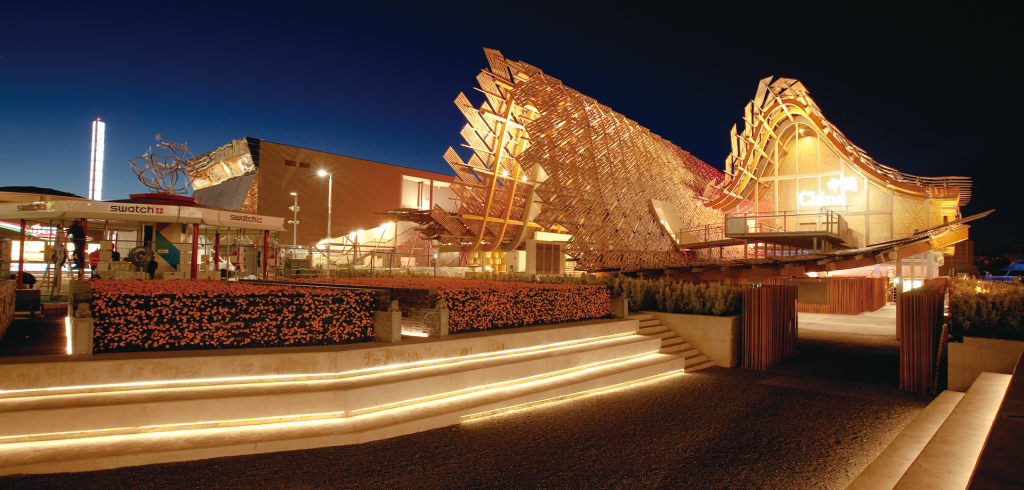
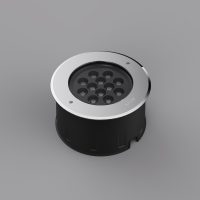
A successful facade lighting strategy requires a careful balance of technical performance, control, efficiency, and durability. Here’s what you need to consider to make an informed decision for your exterior commercial lighting project.
The heart of any lighting fixture is its performance, which is defined by several key metrics.
Lumens measure total visible light. High lumens mean more brightness, but efficacy (lumens per watt) is key for efficiency.
Determines the light’s spread. A narrow beam is for details, while a wide beam is for large surfaces.
Measured in Kelvin (K), this defines the light’s color from a warm glow (~2700K) to a cool daylight hue (5000K+).
Measures how accurately light reveals true colors. A high CRI (80+) ensures materials look rich and natural.
Rough surfaces need grazing light (fixtures close). Smooth surfaces need wall washing (fixtures far).
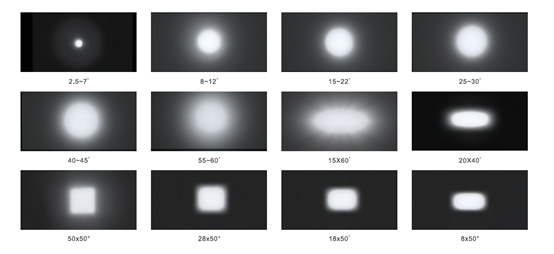
Modern lighting is about more than just on and off. An effective control system provides flexibility, enhances functionality, and can lead to significant energy savings. Options range from simple to highly sophisticated:
The most basic automation. These turn lights on at dusk and off at dawn, ensuring light is only used when needed.
Allows you to adjust brightness levels to create different moods or respond to ambient light, reducing energy consumption.
For dynamic installations. These allow individual control of each fixture to program complex light shows and color changes.
With facade lighting operating for many hours each night, energy consumption is a major consideration, especially for large-scale projects. This is where LED technology truly shines. LEDs are the industry standard for exterior commercial lighting for good reason:
LEDs use up to 80% less energy than traditional sources, leading to immediate and substantial savings on electricity bills.
High-quality LEDs can last 50,000 hours or more, drastically reducing maintenance cycles and replacement costs.
Outdoor fixtures are exposed to harsh conditions—rain, snow, heat, humidity, and UV radiation. Therefore, robust construction and certified quality are non-negotiable.
Indicates resistance to solids and liquids. Look for IP65+ for outdoor use, ensuring it is dust-tight and water-resistant.
Housing should be durable, corrosion-resistant material like die-cast aluminum with an impact-resistant lens.
Effectively dissipating heat is key to a long lifespan. Well-designed fixtures use heat sinks to prevent premature failure.
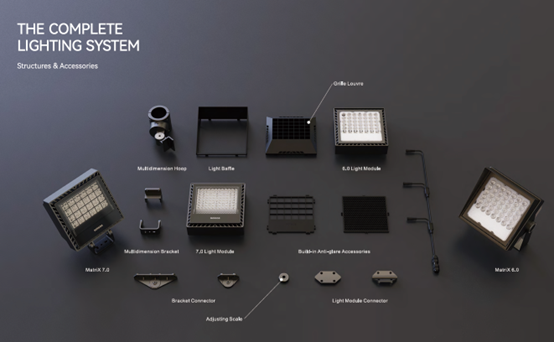
The right lighting partner makes all the difference. At ROLEDS, we specialize in engineering high-performance, durable, and energy-efficient LED lighting solutions built to withstand the elements and bring your architectural vision to life.
Our extensive portfolio of exterior luminaires offers the versatility and quality needed for any project, from sleek corporate headquarters to grand public venues.
Don’t let your project be left in the dark. If you’re ready to transform your building’s facade into a nighttime masterpiece, our team of lighting experts is here to help.
Explore the ROLEDS collection of outdoor lighting solutions or contact us today to discuss your project’s specific needs.
Whether you’re seeking information or assistance with our products and solutions, we’re pleased to help. Simply fill the form and we’ll be in touch as quickly as possible.